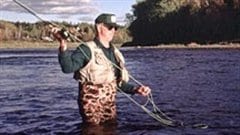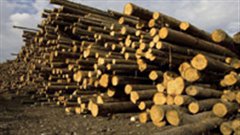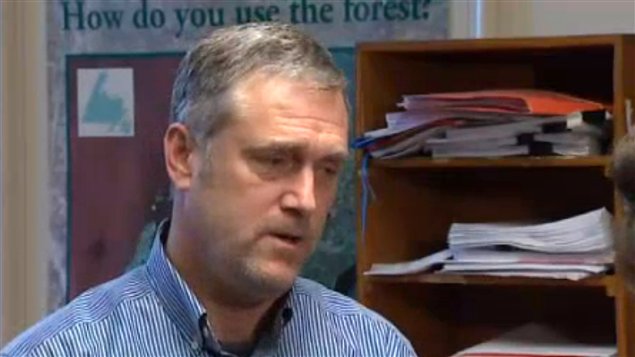A warming climate will change the forests and ecosystems of New Brunswick.
ListenThis comes from a recent report from the University of New Brunswick lead Tom Beckley, professor of forestry and environmental management. Professor Beckley said studies of climate change often look at larger issues, and things like effects on polar bears. He said his goal was look more regionally at how warming and climate change would directly affect the maritime province, where forestry is a major industry, and sport fishing is important.

The forests in the province are generally classed as Acadian, a mixed type of forest with hardwoods and softwoods which transition to the boreal forests in more northerly areas of Canada.
The study indicates that some native species of trees more suited to cooler temperatures, such as balsam, fir, and spruce may diminish or even disappear, along with some cold water fish species like brook trout and salmon as temperatures rise and there is more precipitation envisaged for the province.
New Brunswick is world famous for its sport fishing industry, primarily Atlantic Salmon and trout. This is a highly lucrative industry, but Dr Beckley says there is already some evidence of fishing in certain areas being adversely affected by warming.
Warmer temperatures may also invite more harmful insects which could more easily kill the “stressed” conifers such as is the case with the pine beetle in western Canada, which is making its way eastward.
Climate change might force changes in the important forestry industry. Current practice favours softwood reforestation. This may become more difficult as the trees become less-suited to a warmer wetter climate

The report is entitled. “Potential Effects of Climate Change on New Brunswick Freshwater and Terrestrial Ecosystems.”
Two future scenarios were created based on a consensus of four climate modelers, one for the year 2050, and another for 2100. Dozens of biologists, ecologists, and other scientists were then asked to extrapolate possible scenarios for the future based on the models predictions and their own observations.
Dr Beckley noted that the various scientists were reluctant to speculate on a long-term scenario, but he says it’s important to make such scientific speculations based on best information and the scientist’s knowledge and experience in order to advise politicians and industry tomake better long term political and policy decisions.
The scientists felt that more southern hardwoods would begin to be more prevalent and the “boreal” conifers would retreat further north. As the ecosystem changes, cold tolerant animals like moose and Lynx would become more stressed and possibly be reduced in number in the province, whereas species like white-tailed deer populations may increase
RCI’s Marc Montgomery spoke to professor Tom Beckley at the University of New Brunswick Fredericton Campus.







For reasons beyond our control, and for an undetermined period of time, our comment section is now closed. However, our social networks remain open to your contributions.